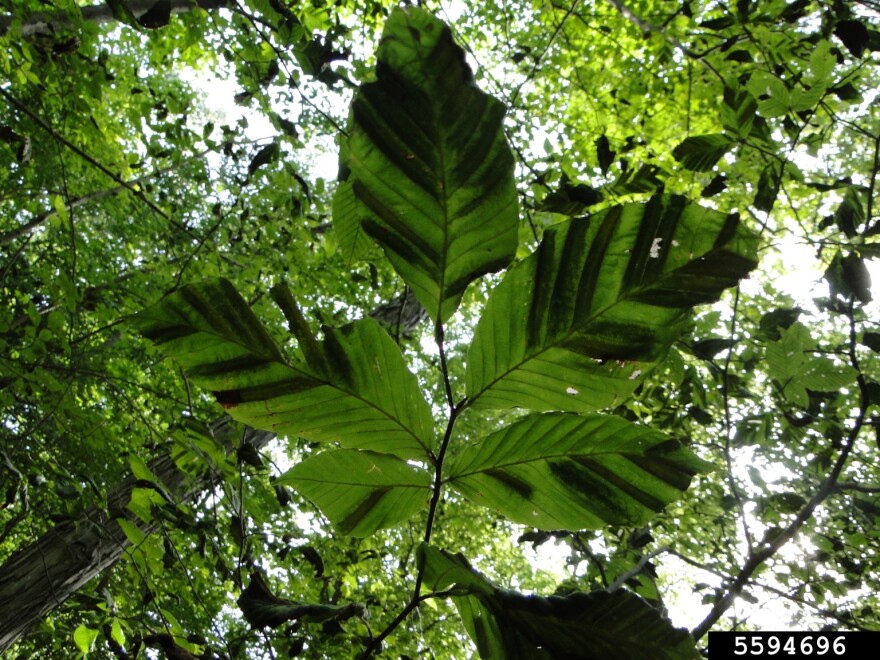Another tree-damaging pest has been found in Michigan. Beech leaf disease is the latest in an onslaught of invasive insects and diseases killing trees in the state.
A microscopic worm, a nematode, is connected to damage to beech tree leaves.

“You get very stunted, distorted, and puckered leaves, then eventually buds that don’t unfurl in the springtime,” said Simeon Wright, a Forest Health Specialist with the Michigan Department of Natural Resources.
The trees that are weakened by the disease are then susceptible to other diseases and can die in six to ten years.
The state confirmed beech leaf disease in a small, private woodlot in southern St. Clair County.
Michigan trees have already been hit by emerald ash borers, Dutch elm disease, and others. Wright said even more pests are approaching.
“Asian longhorn beetle which impacts maples. Spotted lanternfly that would be a significant agricultural pest, affecting grapes and fruit trees.”
The impact of the invasive pests and diseases affects trees wildlife depend on for food, and that people depend on for lumber and backyard shade.
The attacks on the trees comes at a time when climate change is causing fluctuations in temperature and moisture, stressing trees further.
Researchers with the U.S. Forest Service and Michigan State University are working with state foresters to develop hybrid trees that are more resilient to some of the pests and diseases as well as climate change.
To slow the spread of inestations, foresters stress we need to stop moving fire wood from out of state or from Michigan’s lower peninsula to the upper peninsula. Planting a wider variety of trees rather than concentrations of just one kind of tree would give insects and diseases less opportunity spread .
“The more diversity we have out there the less impact the specific disease or insect can have when it moves into the state,” said Wright.
Beech trees are already under attack by beech bark disease. Beech leaf disease will only cause more problems for the species that's part of seven million acres of forest in Michigan, totaling approximately 37 million American beech trees.
State foresters are asking people to look for any signs of the disease. If you suspect you’ve found a tree affected by beech leaf disease, you’re asked to take a photo of the tree and close-ups of leaves. Report the location, date, and time via email at DNR-FRD-Forest-Health@Michigan.gov or use the Midwest Invasive Species Network (MISIN) online reporting tool.






